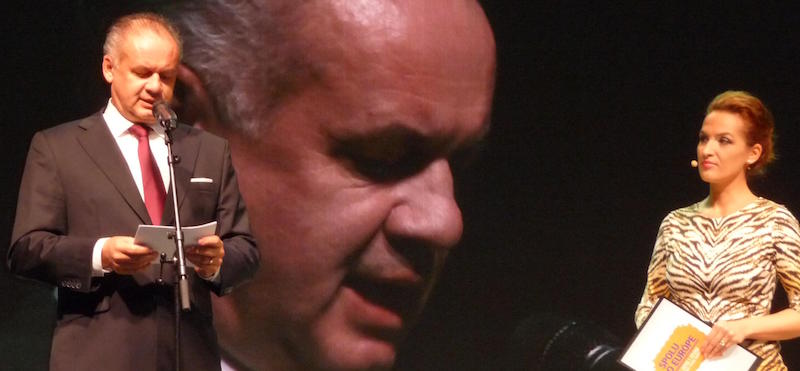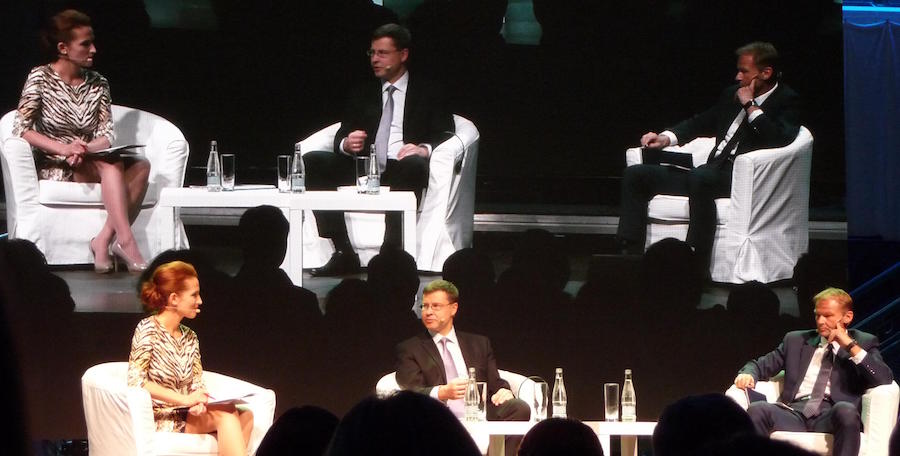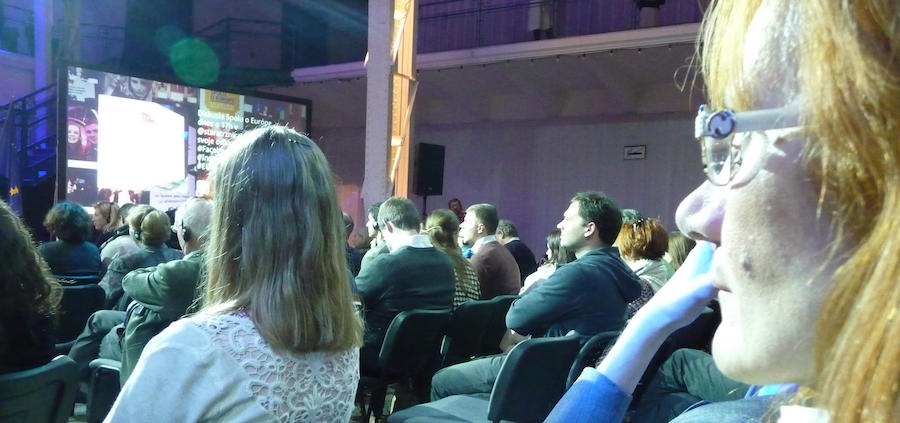It´s about EUROPE - It´s about YOU
Citizens’ Dialogue
Bratislava’s old market hall was filled with engaged citizens, not only from Slovakia, but also from other countries of the EU, eager to discuss important EU issues on November 5, 2015.
The discussion "Together about Europe” was opened by Andrej Kiska, President of the Slovak Republic and Dusan Chrenek, Head of the Representation of the European Commission in the Slovak Republic.

Citizen´s Dialogue speakers, Valdis Dombrovskis, Vice-President of the European Commission responsible for the Euro and Social Dialogue and Vazil Hudak, Minister of Economy of the Slovak Republic, discussed various permanent and actual EU issues. The discussion focused on the Eurozone, the advantages and disadvantages of EU membership, the Euro, EU economic priorities, such as economic growth, unemployment and EU member states’ public finances, EU funds and corruption, the relationship between overregulation at EU level and economic growth and employment, migrants, the future of and opportunities for the younger generation, and responsibility to citizens and other EU member states.

The Slovak Republic will take over the Presidency of the Council of the European Union in the second half of 2016. This is an opportunity for the country to participate more actively in the EU agenda, provide learning and experience for its public administration and to increase citizens’ knowledge concerning EU issues. Are citizens and institutions made aware of all current activities? Do they make use of all the possibilities offered by the EU? These questions were also discussed during the event.
Discussions and several online opinion polls which were running during the event proved the necessity to communicate more thoroughly all EU opportunities, policies and strategies with the public, not only professionals, but also ordinary citizens. Citizens’ opinions appear to be negative concerning the benefits and opportunities of the EU, especially the effectiveness and efficiency of various EU funds for example, corruption and fraud were mentioned as being synonymous with the utilisation of EU structural funds. However, opinion polls confirmed the general public view that membership of the EU provides a better foundation for economic growth and consequently, more opportunities for employment and an increased standard of living in member states. The present important topics, dealing with immigration, were touched upon only marginally as these were not a primary subject of the event. However, the dialogue confirmed that there is much room for public administration professionals and decision makers at national, as well as EU level, to pay more attention to all of the targeted issues discussed.

Building awareness, understanding and knowledge about the EU, its public policies and their impact on public administration and public policy issues are included in NISPAcee activities, mainly within two projects supported by the EU ERASMUS+ programme: European Union Integration Process Promoting Activities and Europeanisation of Public Administration Reforms. The aim is to turn the attention of researchers towards EU integration processes and their reflection in different areas investigated by various NISPAcee research working groups, to stimulate the debate on these issues and to provide a platform for the engagement of researchers and policy makers on EU-related themes. For this reason, NISPAcee representatives, Ludmila Gajdosova, Executive Director and Elena Zakova, Senior Manager, participated in this event.
NISPAcee’s 2016 Annual Conference on the theme Spreading Standards, Building Capacities: European Administrative Space in Progress, to be held in Croatia, in May 2016, fits very well into the above mentioned intentions. We are witnessing a specific process for spreading various standards throughout Europe, both in the east and the west. These standards stand out and are the result of efforts to increase public administration capacities to cope with the increasingly complex and worst problems of the contemporary world. Good European governance, on the one hand and good administration on the other, are probably the best-known components of the common European Administrative Space. It is of special importance for European citizens and those who come to the European territory because they can rely on a predictable, lawful and reliable functioning of public authorities at all government levels. For this reason, it deserves all possible scientific and expert attention, as well as massive research efforts.




 Price:
Price: 








